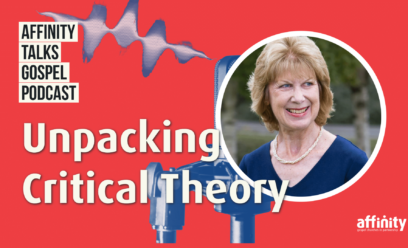Legislation on ‘Conversion Therapy’: What’s been happening?
This article first appeared in our Social Issues Bulletin – Issue 56 which is available to download here.

We’ve been talking about legislation on ‘conversion therapy’ for far too long. And, I’m sorry, but it looks like we’ll have to keep talking about it for a while longer.
How it all began
The saga began back in 2017 when the UK Government carried out, for the first time, a ‘National LGBT Survey’. It was badly designed. It wasn’t representative. Whole crowds responded following recruitment campaigns at Pride parades and through Stonewall’s mailing list.
Out of the results, something rather surprising emerged. Two per cent of respondents said they had been through ‘conversion therapy’. That amounted to over two thousand people. Even LGBT campaigners were stumped. Hadn’t abusive practices like electro-shock therapy stopped decades ago?
Government promises and Christian concerns
Theresa May – then Prime Minister – promised LGBT activists that her Government would ‘end conversion therapy’. Assurances were sought by campaigners like ITV’s Paul Brand that a legislative ‘ban’ would be put in place. When Boris Johnson became PM, he gave his backing to the plan before any consultation and analysis had taken place.
In the UK, Christians were among the first to sound the alarm that politicians were being misled by a campaign that wants to criminalise those who refuse to affirm LGBT identities. In countries that already had legislation on the statute book, this was an increasing concern. No one here was able to give examples of genuinely abusive practices that were still legal; the discourse focused on prayer, pastoral care, and church teaching.
It wasn’t long before women’s groups and LGB (not T) groups joined Christians in raising concerns. The Government study hadn’t even defined its terms. Some of those claiming to have experienced ‘conversion therapy’ were not talking about actual abuse but about disagreements and other experiences which had upset them. Some may have been talking about historic practices thankfully long illegal in the UK, or practices which took place overseas. Another study by lobby group The Ozanne Foundation included people praying for themselves as an example. The problems were mounting.
Legal opinions and human rights concerns
The Christian Institute commissioned a legal opinion from eminent human rights expert, Jason Coppel KC. He looked at the wording of a ‘conversion therapy law’ in Victoria, Australia (which had just been passed) and a Bill proposed in Canada, as well as the definition provided by the leading campaign group in the UK.
Would Christians be caught by a law like that? Yes – he said. Many aspects of the ordinary work of churches would be restricted by a new law of that sort. Prayer, pastoral care, preaching, evangelism, parenting, church membership, and communion could all be caught. But would such a law be viable in the UK? No – Mr Coppel explained that it would violate the European Convention on Human Rights on as many as four grounds.
The whole sorry thing has rumbled on since then. The Christian Institute has received eight more legal opinions, mostly on variations of proposed legislation in the UK. Every single proposal seen so far would restrict the gospel freedoms of ordinary believers.
Proposals in Westminster
The Conservative Government in Westminster said it was working on a ‘conversion therapy’ Bill for England and Wales throughout the last Parliament. A consultation was launched in late 2021 but failed to provide a definition of ‘conversion therapy’ and proposed using a stripped-down version of domestic abuse law as its basis. Multiple promises were made to protect religious freedom, but the proposals were far too vague to reassure. Boris Johnson decided to ditch the plans some months later, only to reinstate them that same evening, but with transgenderism removed. When Rishi Sunak became PM it seemed trans was back. Then the press said the plans were being ditched again. But then they were back on.
Private Members’ Bills and amendments
Parliament’s most strident campaigners for a new law decided to take measures into their own hands. Liberal Democrat Peer Baroness Burt of Solihull came out top of the Lords’ ballot for Private Members’ Bills. Her Bill on ‘conversion practices’ seemed to have been thrown together and fell apart at its first debate in the Lords in February. Twice as many Peers spoke against the Bill as for it, with Lord Forsyth of Drumlean beginning, ‘In nearly 40 years in Parliament, I have never seen a more badly drafted or dangerous piece of legislation’. Lady Burt was forced to admit on the floor of the House: ‘I accept that this Bill is not well drafted’.
Just three weeks later it was the turn of Labour MP Lloyd Russell-Moyle, who had also chosen to propose a Private Member’s Bill on ‘conversion practices’. It was widely acknowledged that he had put significant effort into the drafting; he had met with people on all sides in an attempt to write a Bill that could be supported by all. But, the wording of the Bill was shown to pose significant problems for human rights and religious freedom. Russell-Moyle needed a hundred MPs’ support to progress the Bill to the next stage. He fell short of that, despite a major letter-writing campaign from Stonewall.
Next was the Conservatives’ own Alicia Kearns MP. In quick succession, she tabled and withdrew seven amendments to the Government’s Criminal Justice Bill. What she was doing is anyone’s guess, but it was a total mess. At one point she even added wording to the amendment that made clear prayer would be considered a ‘conversion practice’. The whole farcical episode was derailed by the announcement of the General Election.
What’s happening in Scotland?
At the same time, a separate campaign was underway in Scotland. First was an investigation by the Scottish Parliament’s Equalities Committee into a petition calling for a conversion therapy law. Most of the Committee’s members had previously signed a pledge backing the petition’s aims, and the Committee gave almost no time to considering the views of those who raised concerns.
As if that wasn’t bad enough, the Scottish Government then chose a panel of activists to form an ‘Expert Advisory Group on Ending Conversion Practices’. Only one member had legal training. Advice to The Christian Institute from top lawyer Aidan O’Neill KC said the group had been appointed without any formal process and its recommendations did not ‘give any account of what the existing (criminal and or civil) law might be in this area’.
Worse still, Aidan O’Neill said the recommendations were beyond the competency of the Scottish Government. A law of this sort would not be human rights compliant and trampled on areas of law reserved for Westminster. It would be the Gender Recognition Reform Bill fiasco all over again.
Negative headlines and government response
The press had by now cottoned on to the problems. When the Scottish Government launched its consultation in January, it was met with negative headlines in almost every mainstream paper. ‘Scottish parents face jail if they stop children changing gender’ read the Telegraph’s front page. The Scottish Government is currently analysing responses to the consultation. The new First Minister in Holyrood could yet be persuaded to drop the plans but has so far said he won’t.
What’s happening in Northern Ireland?
In Northern Ireland, a motion was passed by Stormont in 2021 calling for a ‘conversion therapy’ Bill to be brought forward. That motion was proposed by the UUP and supported by Sinn Féin, Alliance, and the SDLP.
The then Communities Minister Deirdre Hargey MLA (Sinn Féin) progressed plans for a new law, but the proposals were never publicly announced, and a consultation was not launched. Alliance Party MLAs said they would table a Private Member’s Bill if legislation was not forthcoming. In the end, Miss Hargey chose to fund a research project by LGBT campaigners in her last few days in office.
That report was published in May. It lacked any kind of academic rigour and should never provide a basis on which to legislate. It merely lists the personal stories of ten people, some of whom were ‘through the researchers’ networks’. The accounts begin with someone who had experienced ‘prayer, Bible studies and teaching’. Another example of a ‘conversion practice’ was someone who said that while out shopping they’d had church members discourage them from gender ‘transition’.
A new motion was brought to the Assembly weeks later, once again calling for the Communities Minister to bring forward legislation.[1] This time, UUP support for the motion had vanished, though an amendment clarifying that prayer and pastoral care were not ‘conversion practices’ was unsuccessful.
NI Communities Minister’s Statement
The new Communities Minister Gordon Lyons MLA (DUP) said:
The development of legislation to ban those practices will require careful analysis of all the elements that are involved. Indeed, if we do establish a definition of what conversion practices are, we also need to examine whether there is a gap in the law and how best we can fill that gap in a way that is compliant and consistent with human rights legislation.[2]
Republic of Ireland
A ‘Prohibition of Conversion Therapies Bill’ was tabled and debated in 2018. Though receiving broad support, the Bill appeared to stall after legal issues were raised by the Attorney General. The Government was advised that the Bill’s wording was too unclear.
Since then, Equalities Minister Roderic O’Gorman has been working on a new Bill he hopes will this time be ‘constitutionally secure’. He got official permission from the Coalition Government to commence drafting in June 2023, but despite being anticipated many months ago is yet to materialise.
What now following the UK General Election?
Conversion therapy was mentioned in various party manifestos (see below). It looks almost certain then, that the debate over laws on ‘conversion therapy’ is set to continue. Perhaps there will be a brief respite while everyone adjusts to the new arrangements in Westminster, but before long MPs will be clamouring to have their say.
We must continue to raise our concerns with those who are newly elected. And we must pray that new laws will not be brought forward that limit gospel freedom.
Extracts from Party Manifestos
Alliance
Alliance MPs will continue to advocate for: An immediate trans-inclusive ban on so-called Conversion Therapy, without loopholes, that extends to NI.
Conservatives
Attempts at so-called ‘conversion therapy’ are abhorrent. But legislation around conversion practices is a very complex issue, with existing criminal law already offering robust protections. The challenges involved can be seen, for example, with the SNP re-consulting for views on their proposals in Scotland and Sweden recently concluding that they will not be pursuing a similar ban. In light of the Cass Review Final Report, it is right that we take more time before reaching a final judgement on additional legislation in this area.
Labour
So-called conversion therapy is abuse – there is no other word for it – so Labour will finally deliver a full trans-inclusive ban on conversion practices, while protecting the freedom for people to explore their sexual orientation and gender identity.
Liberal Democrats
Ban all forms of conversion therapies and practices.
Plaid Cymru
Plaid Cymru would end so-called conversion therapy practices related to sexuality and gender identity.
Ulster Unionist Party
We support banning the practice of conversion therapy.
Footnotes:
[1] See online: https://letuspray.uk/news/inside-the-chamber-a-closer-look-at-the-conversion-therapy-debate-at-stormont
[2] Ibid

Stay connected with our monthly update
Sign up to receive the latest news from Affinity and our members, delivered straight to your inbox once a month.



